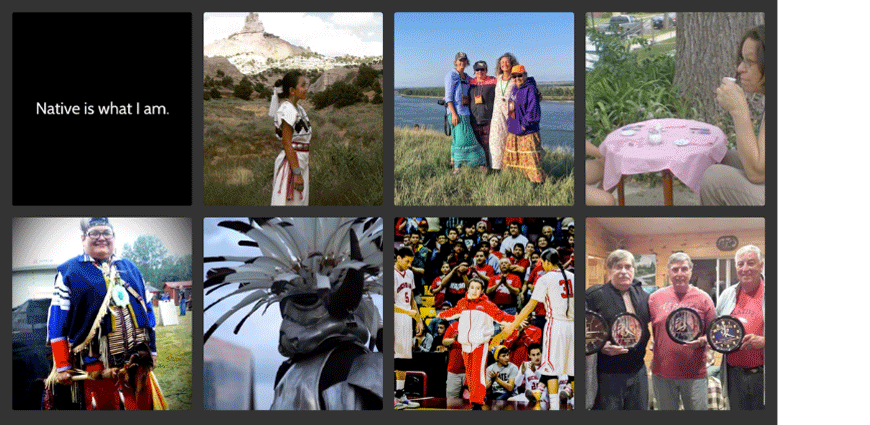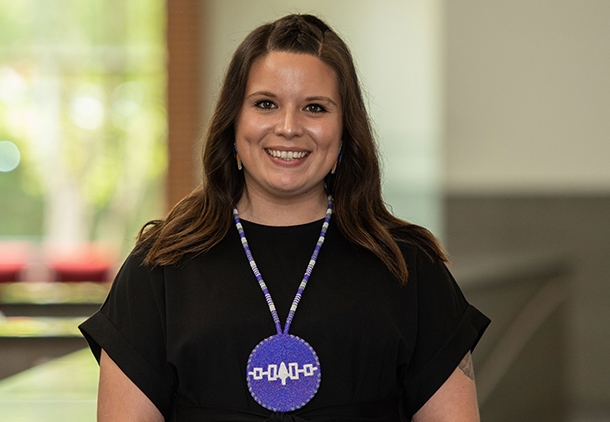Counseling Psychology, Native People and Writing Our Own Narrative

The health and well-being of Native American and Indigenous peoples can be enhanced when they as individuals, and in community, are able to explore their complex identities as a means of understanding their pasts and expanding their future possibilities. Toward that end, Jill Fish, recent Counseling Psychology PhD, identifies dominant cultural narratives - master narratives - that serve to erase Native cultures and stigmatize Native peoples, with the intention to upend them. Fish's dissertation engaged Native American and Indigenous peoples in using digital storytelling to articulate their own stories, thereby locating themselves in the complex multi-cultural worlds of their present lives and defusing the master narrative that has produced so much inequity and injustice.
Fish includes a story from Blair, "Native is What I Am", a member of the Oneida of Wisconsin, to begin her dissertation and to lay out the complexities of these dueling narratives:
“Justice for Native me is the death of flute music and the discontinuation of the generic image of Sitting Bull. Not equating Native with poverty and ignorance. If I know five words in my traditional language, I am not an Indian. To be Native is not to know a lot about the woods. To be Native is not to be part of a fictional hemisphere-wide culture. To be Native is not a casual exploration of my heritage. Justice for Native me is rigorous honesty.
[...] Now I sit with people who are simultaneously Native and not Native and discuss identity decisions based in the tolerable degree of honesty, fearfully designing a comfortable reality. Real but not too real. Comfortably Native, possibly not White, defined by societies that are not our own.”
Teasing out what is 'real' and what is part of a false master narrative is one of the strengths of digital storytelling as a therapeutic method for those who have been underserved in traditional psychological therapeutic settings. Individuals are then able to hold up their stories to those that others have told about them and see the difference between reality and falsehoods based in oppression, creating new future possibilities
In addition to the need for new therapeutic techniques, Fish and her advisor, Moin Syed, argue in a recent article in press at the Journal of Counseling Psychology and available on PsyARXiv, that the true inclusion of Native peoples means re-thinking counseling psychology research strategies. Practices that are participatory, and that engage individuals and communities, promise to be more effective than dominant culture practices in supporting underrepresented groups as they will bring counseling psychology into better alignment with its core values of "social justice, advocacy, and empowerment."

In her TEDxMinneapolis Talk, Honoring Indigenous Cultures and Histories, Fish discussed being influenced by Urie Bronfenbrenner's ecological framework of human development. A developmental psychologist, Bronfenbrenner focused on the interaction of the individual and the environment, creating a 'systems' model that allows for psychologists to seriously consider social and environmental influences on human development. As Fish noted in her talk, reconceptualizing Bronfenbrenner’s original model to privilege the 'chronosystem' and ‘macrosystem’ effectively enables psychologists to consider cultural and historical impacts as well, creating a theoretical means of bringing individual and 'master narratives' into dialogue. After all, as Blair articulates, "Justice for Native me is rigorous honesty."
Explore some of the digital-stories Fish considered in her dissertation at Native is What I Am.


